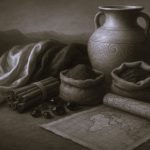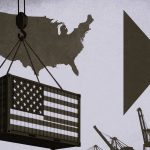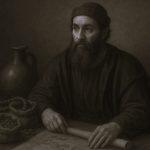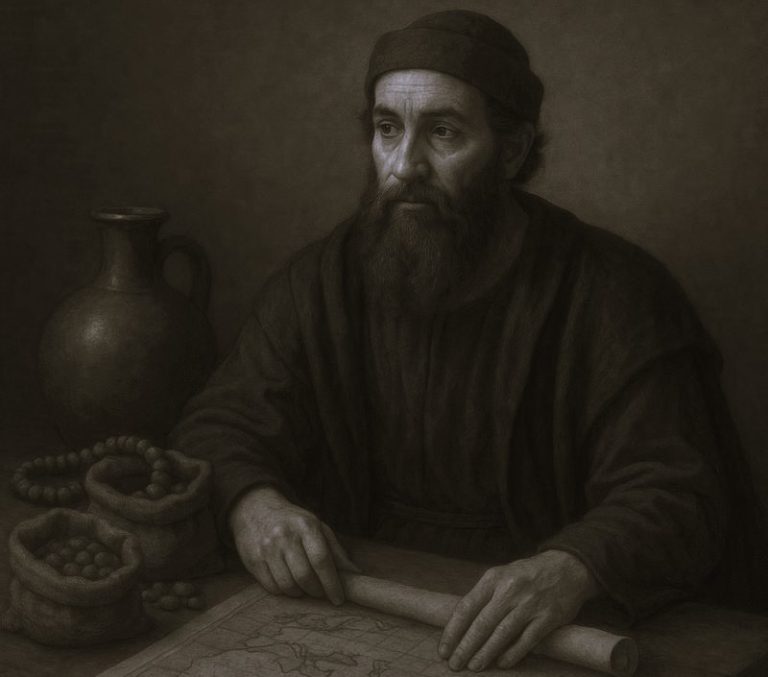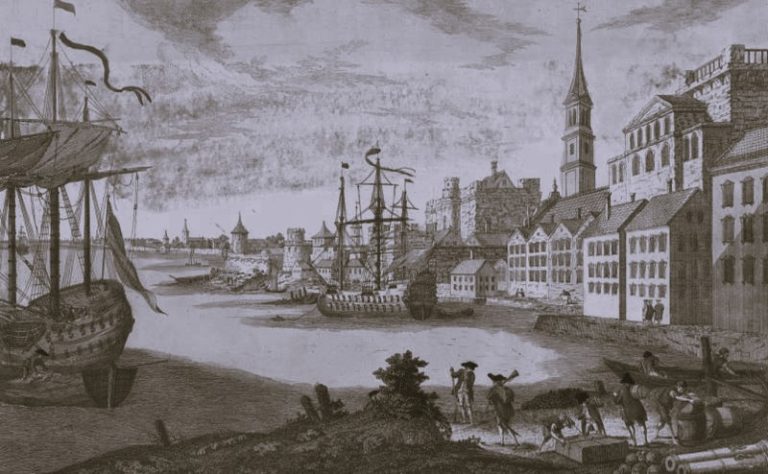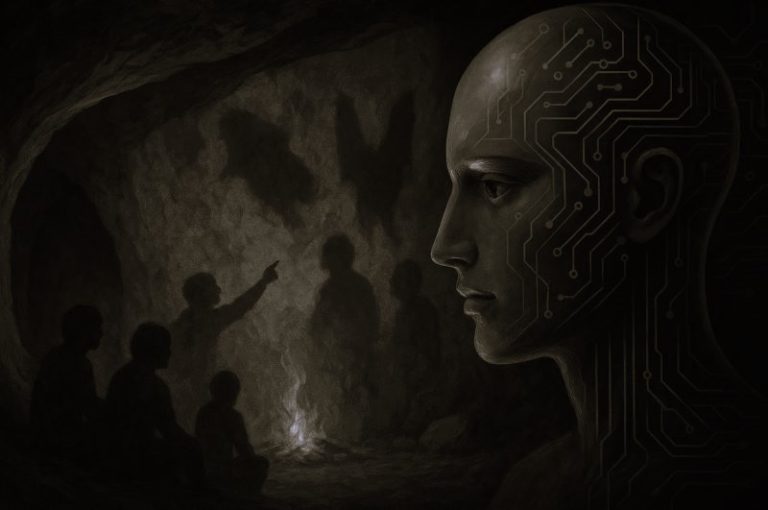

Who Was George Washington?
George Washington (1732–1799) was born and grew up in rural Virginia, at a time when it was a royal colony with British traditions of government by aristocracy and an economy based on growing and exporting tobacco. His father’s early death interrupted George’s formal education. He became a professional surveyor in his late teens but soon thereafter turned to military service as a way to realize his ambitions. As a soldier he demonstrated enough courage and decisiveness to become the commander of the Virginia troops that defended the state’s western frontier during the French and Indian War. He also established himself as a successful tobacco planter at the family plantation, Mount Vernon, married Martha Dandridge Custis, and won election to the Virginia House of Burgesses.
Washington had nothing to gain from the American Revolution, at least in a material sense. He had achieved both wealth and fame as a British subject in colonial Virginia. Yet he was among the first to raise the possibility of armed resistance and accepted command of the Continental Army. He served for the eight and a half years of the Revolution without pay. Though his army was inexperienced, often outnumbered, and poorly supplied, Washington was able to avoid defeat, wear down the British forces, and eventually achieve victory. With independence secured in 1783 by a peace treaty with Britain, Washington appeared before Congress and publicly resigned his military position, returning to Mount Vernon a private citizen of the new nation. His plantation had suffered greatly during his absence and the war.
In 1787 Washington’s concerns about the disintegration of the nation prompted him to serve as a delegate to the Constitutional Convention in Philadelphia. He presided over the convention, and his support was key to ratification of the newly proposed Constitution. In 1789, Washington was inaugurated first president of the United States. He served two terms, guiding the new government through the organization of the executive branch, founding the nation’s capital, Washington, D.C., opening the west for settlement, and establishing precedents that have influenced the conduct of succeeding presidents ever since. He left the presidency in 1797, following the election of John Adams, and again returned to Mount Vernon. Washington briefly returned to public life when President Adams asked him to take command of the army in anticipation of possible war with France. He died at Mount Vernon in December 1799.
Establishing the Principle that the Military is Subordinate to Civilians

In assessing Washington’s career, Thomas Jefferson emphasized the importance of the rule of law when he wrote that Washington had earned “everlasting remembrance” by “obeying the laws through the whole of his career, civil and military, of which the history of the world furnishes no other example.” As commander-in-chief of the continental Army, Washington never lost sight of the fact that his authority came from Congress, and that the purpose of the army was to carry out the will of the civil government. Even when Congress voted Washington broad-reaching emergency powers late in 1776, he was careful not to exceed the bounds of his legal authority.
When his officers were angry late in the war because Congress had not paid them as promised, he refused to support their plan to march on Congress. Instead he confronted the officers planning this action, known as the Newburgh Conspiracy. Washington won their allegiance when he made an example of his own self-sacrifice. Eyewitness accounts relate that Washington used his failing eyesight as the example, saying “Gentlemen, you will permit me to don my spectacles, for I have grown not only gray but nearly blind in the service of my country” when he was unable to read a document.
The most important public example occurred at the end of the Revolution, when Washington returned his commission—the symbol of his authority—to Congress. At the time he took this step, his popularity and power over the army might have permitted him to seize control of the government, as victorious generals had done before and have often done since. Julius Caesar in ancient Rome, Oliver Cromwell in England, and Napoleon Bonaparte in France were all successful military leaders who found the temptation of political power irresistible. Washington so strongly established the precept that the military serves the people of the nation and their civilian government that there has never been a threat to the American government from its own military.
Washington’s Role in the Drafting and Ratification of the Constitution

Many of the Founders gave their first loyalty to their home states. From the very beginning of the Revolution, however, Washington was a nationalist. His country was America, not Virginia, and what America could become through a strong union of the states. Later, as president, he would declare that Americans as “citizens by birth or choice…must always exalt the just pride of patriotism more than any appellation derived from local discriminations.”
Convinced of the need for a strong national government, Washington agreed to attend the Constitutional Convention. He spoke rarely during debates, in part because he was the presiding officer. The Convention delegates assumed that Washington would also become the first president chosen under the new Constitution, and this encouraged them to propose strong, wide-ranging powers for the executive. The shortcomings of the Articles of Confederation had convinced the delegates that a weak executive was a mistake. They knew that many Americans were distrustful of a strong executive, but, as one delegate observed, “the powers to be given to a president [were shaped] by opinions of Washington’s virtues.”
Washington did not participate in the public debates over ratification, although his support was widely known and had a strong influence. Privately he argued for ratification, urgently explaining to Anti-Federalist Patrick Henry that “it is the best constitution that can be obtained…and…this, or a dissolution of the union awaits our choice.” Anticipating the outcome of the struggle over ratification, he wrote to Lafayette: “A few short weeks will determine the political fate of America for the present generation and probably produce no small influence on the happiness of society through a long succession of ages to come.”
Persuaded that his election would help cement support for the new government, Washington reluctantly agreed to serve as the nation’s first president. He likened his feelings on once again taking up the burdens of public service to “those of a culprit who is going to the place of his execution.”
How Washington’s Administration Shaped the Executive Branch

Constitutions do not become real without the institutions necessary to implement them. It fell primarily to Washington to give flesh and blood to the executive branch and the national government generally during their first, critical years. As president, Washington demonstrated the value of a strong executive in the hands of a trustworthy person. He stayed within the bounds of presidential authority outlined by the Constitution and the acts of the First Congress organizing the executive branch. For example, Washington conscientiously sought the “advice and consent” of the Senate in making appointments to office and in executing treaties with foreign governments, as the Constitution required. At the same time, the Senate’s refusal to respond immediately to Washington’s consultations helped to establish that body’s right to both give and withhold its advice and consent.
In filling the many offices created by the new government, Washington avoided making appointments on the basis of social standing, heritage, or friendship. His appointments advanced the idea that the best-qualified people should be tapped for office. He proved a good judge of talent, selfless in advancing such promising younger men as Hamilton and Jefferson. He understood his own limitations and was not reluctant to rely upon the counsel of others. Washington also began the custom of consulting with his principal department heads as a group, which practice led eventually to the creation of the cabinet, an important feature of American government to this day.
By the time Washington retired from the presidency in 1797, he had established that the power of the president was vested in the office, not in the individual who held the office. He attended the inauguration of his successor, John Adams, and insisted on walking behind him at the close of the inaugural ceremonies, thus demonstrating the peaceful transfer of power under the new Constitution.
Establishing the Authority of the Presidency

Within the bounds of the Constitution, Washington’s vigorous policies established the president as an energetic leader, not a ceremonial figurehead. He required subordinates to seek his approval for their actions, and accepted personal responsibility for their conduct. While he consulted with the Senate on appointments, he insisted that the president alone had the authority to fire an appointee, guaranteeing the president’s control of every member of the executive branch. Although Washington employed the president’s constitutional power of the veto only twice, he asserted the president’s right to reject legislation with which he disagreed.
It was during Washington’s presidency that the idea of implied powers in the “necessary and proper” clause of the Constitution was first invoked to justify his signing the law creating the first national bank. As commander-in-chief, Washington called out the militia to put down the Whiskey Rebellion in 1794. He took a strong hand in foreign policy, prudently resisting British and French threats to American interests and at the same time keeping the young nation out of the European war.
Influencing the Development of Political Parties
In his Farewell Address Washington warned against the danger of party and faction. He believed in the virtues of nonpartisan government, in which patriotic citizens of different views would be willing to serve together. Washington’s great stature as a national hero and his willingness to serve for two terms bridged strong regional differences, and gave the new government time to take root before party factions could become divisive.
At the same time, however, Washington’s belief in a strong executive and his nationalist sentiments inclined him to favor Hamilton’s policies over Jefferson’s. His warnings against party and faction to the contrary, he was in many respects the country’s first Federalist president.
Washington as a Slaveholder in a Nation Espousing “Freedom for All”

George Washington was a leader of a revolution that was one of history’s greatest advances for individual liberty. Yet throughout his life, he denied liberty to others as a slaveholder and gained wealth from their labor. Washington accepted the legality of slavery and the property rights of slaveholders. He took steps to prevent some of his own slaves from running away to freedom when traveling to northern states. Realizing that the issue of abolition could well divide the young republic, he never made a public statement in opposition to slavery.
Nevertheless, Washington’s private correspondence shows that he had come to reject slavery, both for the human suffering it caused and on principle. His doubts about slavery seem to date from the time of the Revolution when he stopped selling or purchasing Africans. He later wrote, “I am principled against this kind of traffic in the human species.” He came to see slavery itself as an immoral, if not illegal, institution. “There is not a living being who wishes [its abolition] more sincerely than I do.” In the will he drafted in 1799, he provided for his slaves to be freed after his and Martha’s death, and set up a fund to care for those who were elderly or infirm.
Additional Reading
- Aikman, Lonnelle. Rider with Destiny: George Washington (McLean, VA: Link Press, 1983).
- Alden, John R. George Washington: A Biography (Baton Rouge, LA: Louisiana State University Press, 1984).
- Allen, W. B., ed. George Washington: A Collection (Indianapolis: Liberty Classics, 1988).
- Brookhiser, Richard. Founding Father: Rediscovering George Washington (New York: Free Press, 1996).
- Cunliffe, Marcus. George Washington and the Making of a Nation American Heritage Junior Library (Mahway, NJ: Troll Associates, 1956).
- Cunliffe, Marcus. George Washington: Man and Monument (Boston: Little, Brown & Co., 1958).
- Flexner, James T. Washington: The Indispensable Man (Boston: Little, Brown & Co., 1974).
- “George Washington,” Encyclopedia Britannica.
- Hirschfeld, Fritz. George Washington and Slavery (Columbia, MO: University of Missouri Press, 1997).
- Mullin, Gerald W. Flight and Rebellion: Slave Resistance and Rebellion in Eighteenth Century Virginia (New York: Oxford University Press, 1983).
Originally published by the Center for Civic Education, republished under fair use for educational, non-commercial purposes.
